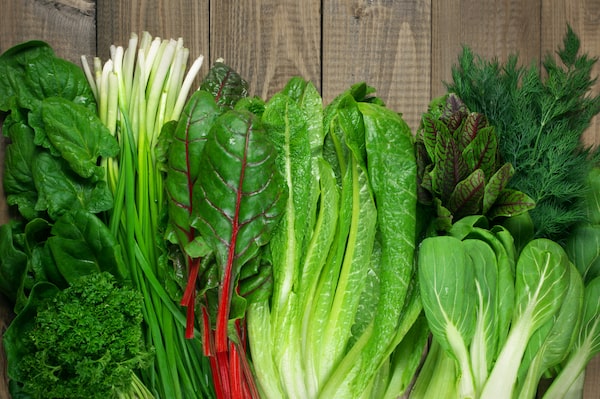
These new findings add support for the importance of diet adherence for losing weight. But they also underscore the potential advantage of focusing on food quality within a given diet for even greater weight loss.Svetlana Lukienko/iStockPhoto / Getty Images
Low-fat and low-carbohydrate diets are two of the most researched approaches to weight loss, however neither has been shown to be consistently more effective than the other.
Past studies have identified diet adherence as a key factor for successful weight loss. Other research suggests that eating a high-quality diet is important.
It hasn’t been known, though, if the combination of sticking to a given diet and eating a high-quality diet – one that focuses on whole grains, fruits and vegetables, unsaturated fats and healthy protein sources – provide additive benefits for losing weight.
Until now.
New findings from the Stanford University School of Medicine suggest that both factors are important. And if implemented together, you’ll achieve superior weight loss results.
The DIETFITS trial
DIETFITS (Diet Intervention Examining The Factors Interacting with Treatment Success) is a one-year randomized controlled trial that enrolled 609 healthy adults, ages 18 to 50, with overweight and obesity.
Participants were assigned to follow either a healthy low-carbohydrate diet or a healthy low-fat diet, with the goal of reducing carbohydrate or fat to 20 grams a day for the first eight weeks then slowly increasing intake until participants reached a level they could sustain indefinitely.
Both diet groups were told to maximize vegetable intake, minimize added sugars and refined grains and focus on whole foods that were minimally processed, nutrient-dense and prepared at home whenever possible. Counting calories was not required.
Participants attended group classes led by registered dietitians regularly during the study. They were taught how to achieve their carbohydrate or fat targets and how to optimize the quality of their diets.
Diet information was collected at the study onset and at the three-, six- and 12-month points.
The original study findings, published in 2018, revealed that in the end, it didn’t matter whether people cut carbohydrates or fat. Over the course of a year, both groups lost, on average, 12 pounds.
Despite not being told to restrict calories, both groups ended up consuming 500 to 600 fewer calories each day.
The latest DIETFITS findings
For the current analysis, published on Nov. 4 in the American Journal of Clinical Nutrition, the researchers aimed to determine whether improvement in diet quality or close adherence to diet (e.g., achieving the daily 20 grams of carbohydrates or fat target), or both, were factors tied to successful weight loss.
Using dietary data collected during the study, researchers calculated diet quality scores for 448 DIETFITS participants.
The researchers assessed participants’ 12-month change in diet quality (high quality or low quality), as well as their 12-month change in carbohydrate or fat intake (high adherence or low adherence).
In both diet arms, people most successful at losing excess weight were those who had both high diet quality and high adherence. Compared to those with low diet quality and low adherence, these participants had a statistically significant decrease in weight over one year.
People who had high diet quality but low adherence, or vice versa, also lost more weight than those who scored low on both factors, but the decrease in weight wasn’t statistically significant, meaning it could have occurred by chance.
These new findings add support for the importance of diet adherence for losing weight. But they also underscore the potential advantage of focusing on food quality within a given diet for even greater weight loss.
How diet quality may help weight loss
A diet based on whole and minimally processed foods could influence weight loss by providing filling-fibre and fewer calorie-dense foods.
Unlike the carbohydrates in highly processed foods, those in whole foods typically cause a slower and lower rise in blood glucose and insulin, which may help control appetite.
As well, raw fruit and vegetables have a high water content, which can also contribute to satiety.
And a high-quality diet supplies plenty of nutrients, some of which may be involved in body fat regulation.
Optimizing diet quality
Improving the quality of your diet can make a positive difference to your overall health and wellbeing.
Replace refined (white) grains with whole grain foods such as brown rice, farro, quinoa, whole grain pasta and oats. Aim for at least three servings a day (e.g., half-cup of cooked grain or one slice of 100 per cent whole grain bread).
More often, choose fish, poultry, beans and lentils and nuts for protein.
Include vegetables – fresh or frozen, raw or cooked – at every meal.
Replace highly processed snacks (e.g., chips, cookies, refined crackers) with whole fruit, raw vegetables, roasted chickpeas or lentils and nuts and seeds.
Substitute sugary drinks, including fruit juice, with still or sparkling water or unsweetened tea.
Leslie Beck, a Toronto-based private practice dietitian, is director of food and nutrition at Medcan. Follow her on Twitter @LeslieBeckRD
 Leslie Beck
Leslie Beck